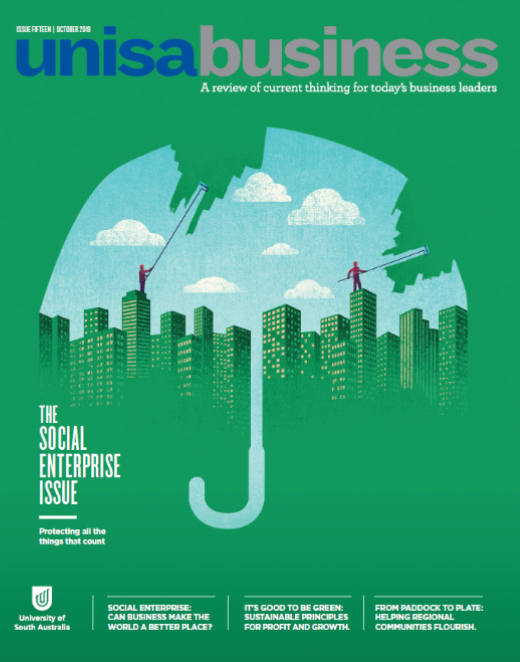25 June 2020
WRITER: Peter Sandeman
Time and time again, sceptics have said it’s not possible: profit and compassion cannot coexist. But today, not only is it possible, but a real choice that delivers far more than just the bottom line.
The more of us who are both compassionate and successful in business, the stronger the South Australian economy will be. Take a look at AnglicareSA. Each year, we turn over $180 million while also employing nearly 2000 people alongside 500 volunteers. In doing so, we serve more than 62,000 South Australians through services that span emergency assistance, foster care for children, aged care, community housing, mental health, disability support and so much more.
But we’re not alone. Human service not-for-profits in SA employ more than 45,000 people and 55,000 volunteers. Our combined turnover is close to $3.8 billion and we contribute 9.4 per cent to our Gross State Product – more than manufacturing, agriculture or construction.
Over the next five years, the human services sector is forecast to grow by 14.9 per cent to exceed $4.3 billion. South Australia must simultaneously advance market efficiency, to create the wealth to sustain our population and further our well-being, social and economic equality, which enables us to be truly inclusive.
Every day, I see the impact of market inequality on the poorest and most marginalised individuals and communities. Research shows that economic inequality is a major determinant of ill health and poor education, and therefore a major effect in retarding economic growth.
In their ground-breaking book, The Spirit Level, authors Richard Wilkinson and Kate Pickett convincingly demonstrate that, for wealthy countries, income inequality is closely related to a range of health and social problems. The greater the income and wealth inequality, the poorer the health and social outcomes, resulting in lower and less sustainable economic development.
Health, education and social services organisations make a positive difference in this space, but we must change the way we see ourselves and the way we operate in the marketplace. We must become surplus-for-purpose businesses, driving profits back into our work and communities, not into the pockets of investors.
Today, through directions set by market-based funding such as Consumer Directed Care in community aged care and the National Disability Insurance Scheme, community sector agencies like AnglicareSA are transforming themselves into social businesses – albeit with varying degrees of enthusiasm and success – as the funding is now in the hands of our customers.
AnglicareSA is embracing this transformation with the belief that social enterprises can invigorate the South Australian economy.
Social enterprises have much to offer in a state where we are devoid of corporate head offices, where we have burgeoning youth and adult unemployment and underemployment, and where lagging economic development is compounded by increasing social and economic inequity.
Without the need to provide profits to investors, social business will create the jobs and economic activity to reduce inequality and its blight on the lives of so many people and the drag it creates on economic growth.
Social enterprise is accessible to community groups all over South Australia to generate standalone start-ups or to partner with businesses, to create productive enterprises to strengthen the social and economic fabric of South Australia. It is a movement we need to join, encourage and invest in.
Increasingly innovative, research-led initiatives are vital to serve individuals and families in need. It is only through continuing to invest in evidence-based research that we can connect with government and community to drive social enterprise. In this vein, we have recently partnered with the University of South Australia to establish The Australian Alliance for Social Enterprise (TAASE).
Deliberately located within the UniSA Business School, TAASE seeks to join business and commerce students with the expertise of non-government organisations to tackle the economic and social challenges in our sector.
We can show governments, the business sector and community that economics and compassion are not mutually exclusive. That their marriage will enrich our state and best serve our community. Together, we will start to see the economic benefits of compassion.


